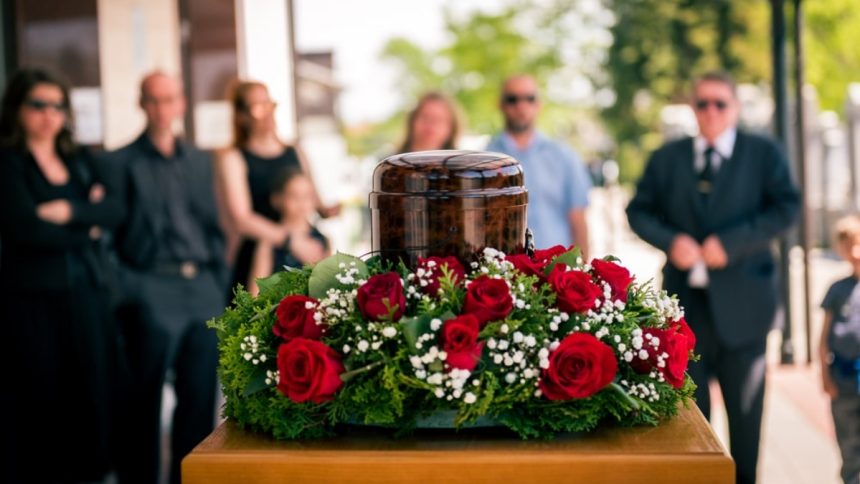Facing the idea of death is never easy, but taking the time to plan ahead can be one of the most thoughtful and considerate acts for your family. Funeral pre-planning involves making decisions about your funeral arrangements in advance.
In this guide, we will explore why pre-funeral planning is an invaluable gift for both you and your loved ones.
The Importance of Funeral Pre-Planning
Pre-planning a funeral is often overlooked because many people are uncomfortable discussing death. However, it offers several key benefits that make the process worthwhile. By planning ahead, you can:
- Ensure your personal wishes are respected.
- Alleviate emotional and financial stress on your loved ones.
- Lock in prices for funeral homes service, protecting against future inflation.
- Provide your family with clear guidance, eliminating confusion or disagreements about your preferences.
For families already grieving, having a plan in place can bring a sense of relief and comfort, knowing they are following your wishes.
Steps to Funeral Pre-Planning
1. Reflect on Your Preferences
The first step in funeral pre-planning is to think about how you would like to be remembered. Consider the type of service you envision, whether you prefer burial or cremation, and if there are any specific details that matter to you. Do you want a religious or secular ceremony? Would you prefer a formal gathering or something more relaxed, such as a celebration of life?
Taking the time to reflect on these decisions will help guide the rest of the planning process. It’s helpful to write down your preferences so you can easily share them with family and your chosen funeral director.
2. Choose Between Burial and Cremation
One of the primary decisions in pre-planning is whether you want a burial or cremation. Each option comes with its own considerations:
- Burial: You’ll need to choose a cemetery, type of burial plot, and consider if you want a traditional casket burial or an eco-friendly alternative like a natural burial.
- Cremation: Decide if you would like your ashes to be placed in a columbarium, scattered in a meaningful location, or kept by loved ones in an urn.
Your funeral director can help you understand the options available and guide you toward a choice that fits your personal preferences and budget.
3. Plan the Service
The service is a central part of a funeral, and pre-planning allows you to outline exactly how you would like it to be conducted. Consider the following elements:
- Location: Decide where you’d like the service to be held, whether at a funeral home, place of worship, or another meaningful location.
- Type of Service: You can opt for a traditional funeral, memorial service, or celebration of life. Think about whether you want a formal or informal gathering.
- Personal Touches: Add personal details, such as music, readings, or a slideshow of cherished memories. This is where you can make your funeral a true reflection of your life and personality.
By pre-planning these elements, you can ensure that your service is meaningful and aligned with your values, offering comfort and closure to your family and friends.
4. Make Financial Arrangements
Funerals can be expensive, but pre-planning allows you to budget ahead of time and lock in current prices, potentially saving your family from higher future costs. Many funeral homes offer pre-payment plans, giving you the option to pay for services upfront or in installments.
It’s essential to carefully review the terms of any pre-payment agreement and ensure that the funds are safely protected, such as through a trust or insurance policy. This financial foresight can lift a significant burden off your family’s shoulders when the time comes.
5. Communicate Your Wishes
Once you’ve made your funeral arrangements, it’s important to share your plan with your loved ones. This ensures that they are aware of your wishes and can easily access the details when needed. It’s also helpful to provide them with contact information for the funeral director and any documents related to your plan.
Having open conversations with your family about your funeral preferences can prevent confusion or disagreements later on, allowing everyone to focus on grieving and remembering your life.
6. Update Your Plan as Needed
Life is constantly changing, and so might your preferences for your funeral. It’s important to periodically review and update your pre-plan, especially if significant life changes occur, such as moving to a new location or adjusting your financial situation.
Funeral directors can assist in updating your plan, ensuring that it continues to reflect your current wishes and circumstances.
Benefits for Your Loved Ones
Pre-planning a funeral is one of the greatest gifts you can give to your family. It provides clarity and direction during a time of loss, sparing them from having to make difficult decisions while grieving. The emotional and financial stress of planning a funeral can be overwhelming, but when you have already outlined your wishes, your family can find comfort in knowing they are honoring your life exactly as you intended.
Additionally, pre-planning offers peace of mind to your family members. Instead of focusing on the details of planning, they can spend time together, sharing memories and supporting each other through the grieving process.
Funeral pre-planning is not just a practical decision, but a compassionate one. It allows you to take control of your final farewell, ensuring that your wishes are carried out and relieving your loved ones of unnecessary stress. Funeral directors play a vital role in helping you navigate the pre-planning process, offering expert guidance every step of the way.
By taking the time to plan your funeral in advance, you can give your family the invaluable gift of peace of mind, allowing them to focus on what truly matters—celebrating your life and cherishing the memories you created together.
Lynn Martelli is an editor at Readability. She received her MFA in Creative Writing from Antioch University and has worked as an editor for over 10 years. Lynn has edited a wide variety of books, including fiction, non-fiction, memoirs, and more. In her free time, Lynn enjoys reading, writing, and spending time with her family and friends.















